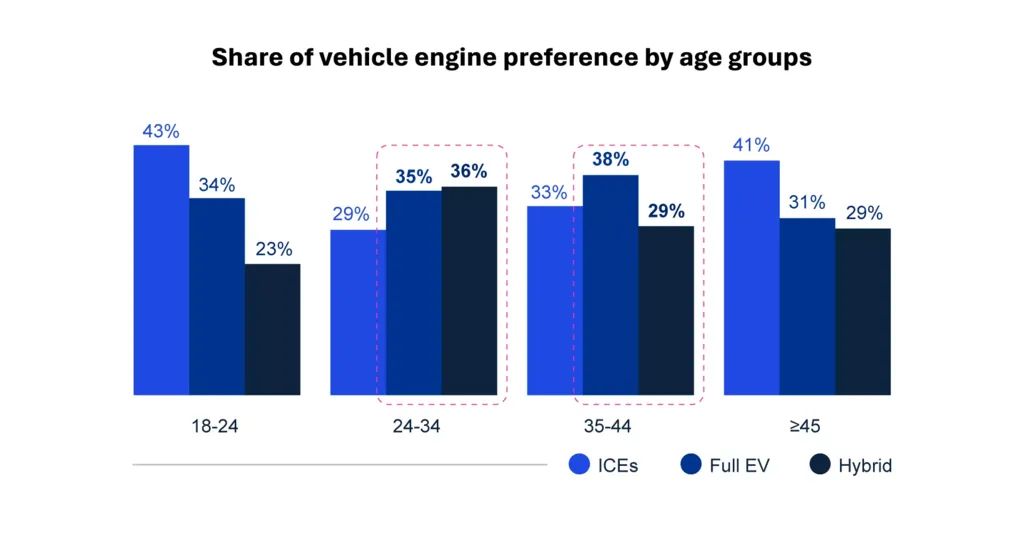Vietnam is moving quickly to position itself as a leader in sustainable transport. Through bold fiscal Vietnam Electric Mobility Incentives, regulatory targets, and market-driven innovation, the country is setting the stage for strong electric vehicle (EV) adoption. The combination of government support and private sector response is reshaping Vietnam’s auto landscape at remarkable speed.
Lowering Costs Through Vietnam Electric Mobility Incentives
At the heart of Vietnam Electric Mobility Incentives are sweeping measures to cut upfront expenses for buyers. From March 2022, registration fees for battery electric vehicles were set at 0% for three years. After this period, fees will remain discounted by 50% for two additional years. Such policies make EVs significantly more affordable in the short and medium term.
In addition, the special consumption tax on EVs has been slashed to just 1-3% until February 2027. By contrast, conventional cars face tax rates of 15-50%. This huge differential signals clear government intent to encourage cleaner transport. Lower ownership costs have become one of the strongest drivers of adoption.
Read Also: Reviewing The Rise of Vietnam Renewable Energy Development
Market Growth and Ambitious Targets

Vietnam’s EV market is valued at USD 3.12 billion in 2025. Projections suggest it will nearly double to USD 7.41 billion by 2030, at a compound annual growth rate (CAGR) of 18.88%. This growth trajectory reflects both domestic demand and rising investor confidence in the sector.
Production figures are also increasing. By August 2022, more than 3,000 EVs had been produced or assembled in Vietnam. The government has set ambitious forecasts: 1 million EVs by 2028 and 3.5 million by 2040. Such targets tie closely to national emissions reduction plans.
Policy Commitments to Green Transport
The government’s approach extends beyond cars. Regulations require all new urban buses to be green by 2025. By 2030, half of all urban vehicles must be electric. These milestones connect transport policies directly with environmental goals.
Preferred charging tariffs of 2,204 VND/kWh, combined with potential electricity subsidies for EV stations, reduce operating costs. These measures encourage both consumers and investors to engage in the EV ecosystem.
Read Also: Vietnam Green Building Certifications: Developers' Key to Sustainability
Vietnam Electric Mobility Incentives: Private Sector Engagement
Companies like VinFast are playing a critical role. The automaker has covered registration fees for EV buyers in major cities such as Hanoi, further lowering adoption barriers. Beyond pricing, VinFast also offers financing solutions like low-interest loans, making EVs accessible to more households.
Global competition and rising fuel costs are also pushing consumers toward sustainable choices. Lower operating costs, environmental awareness, and fiscal incentives are creating a tipping point for EV adoption in Vietnam.
Challenges and Infrastructure Gaps
Despite strong policies, challenges remain. Charging infrastructure is still limited, creating hesitation for long-distance use. To address this, Vietnam is rolling out plans for a nationwide public charging network and issuing technical guidelines for operators. These steps are critical for ensuring that adoption targets remain realistic.
Market responses indicate confidence. Consumer interest is growing rapidly, supported by clear cost advantages and a favorable policy environment. While the EV market’s share remains modest in Southeast Asia, Vietnam’s trajectory suggests leadership potential in the region.
Vietnam Electric Mobility Incentives: The Road Ahead
Vietnam’s incentives are bold and targeted. By cutting taxes and fees, setting measurable policy goals, and encouraging private investment, the country is building momentum for its EV transition. Challenges in infrastructure and consumer readiness are real, but the direction is clear.
With the market set to more than double by 2030 and policy commitments aiming for millions of EVs on the road, Vietnam is proving that determined incentives can drive transformative change. Vietnam Electric Mobility Incentives are not only about affordability; they are about positioning the nation as a key player in the future of sustainable transport in Asia.







